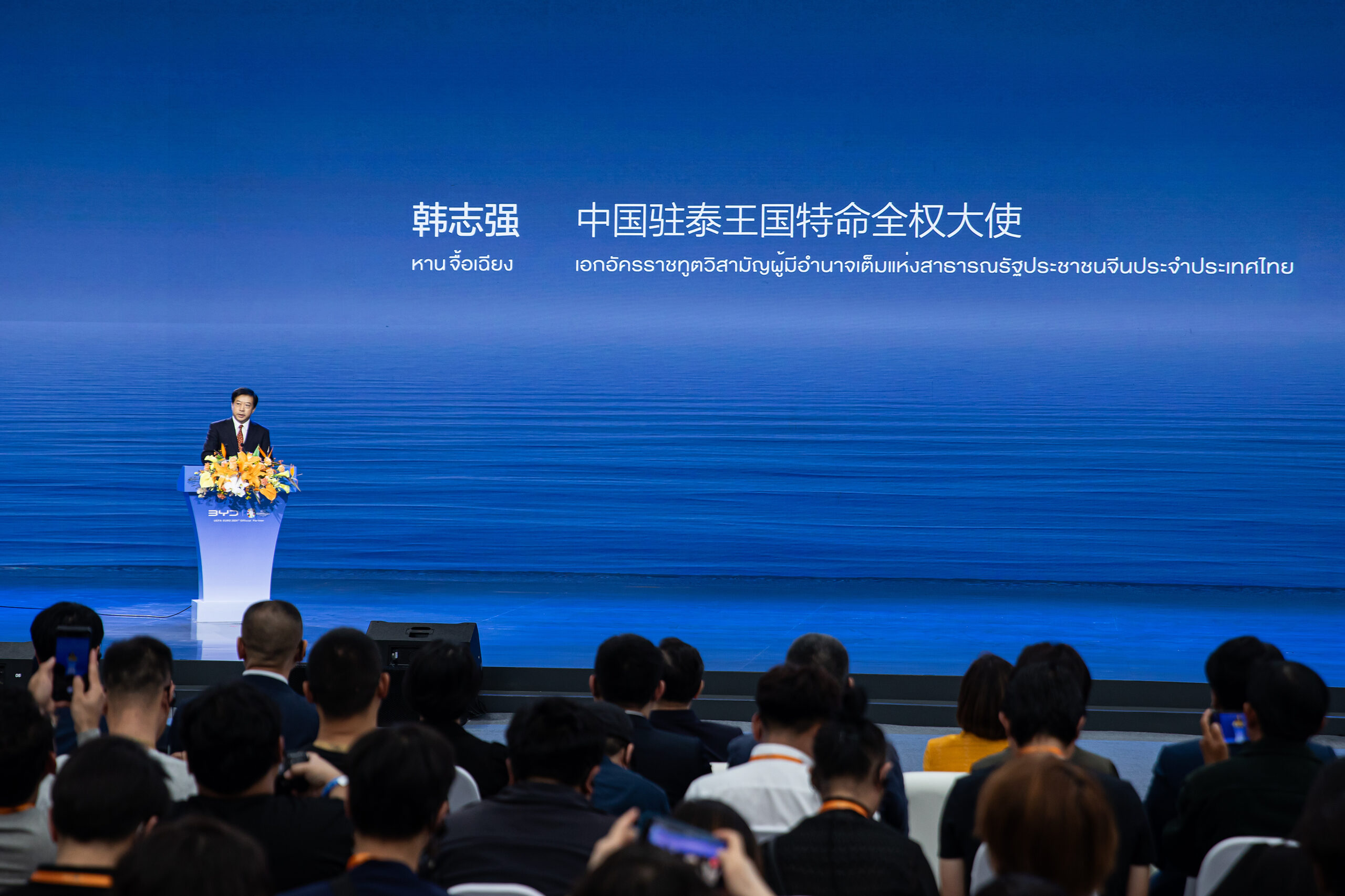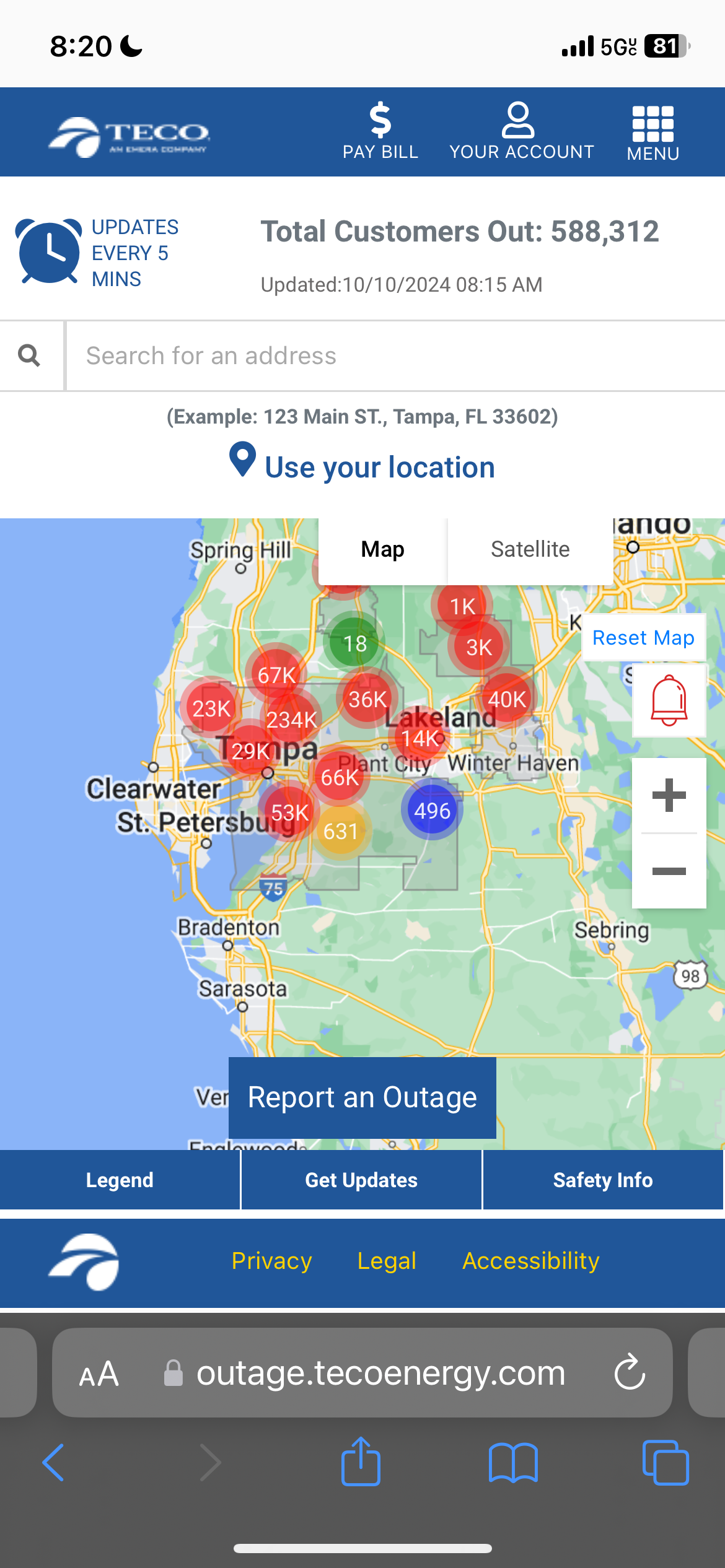For the sake of Africans and the rest of the world, African leaders need to confidently reject the net-zero movement and embrace energy freedom—including fossil fuel freedom.
By Alex Epstein
Today I will be addressing hundreds of African energy leaders at Africa Energy Week. I am thrilled to see that there are demonstrators at this event who are welcoming me and my message.
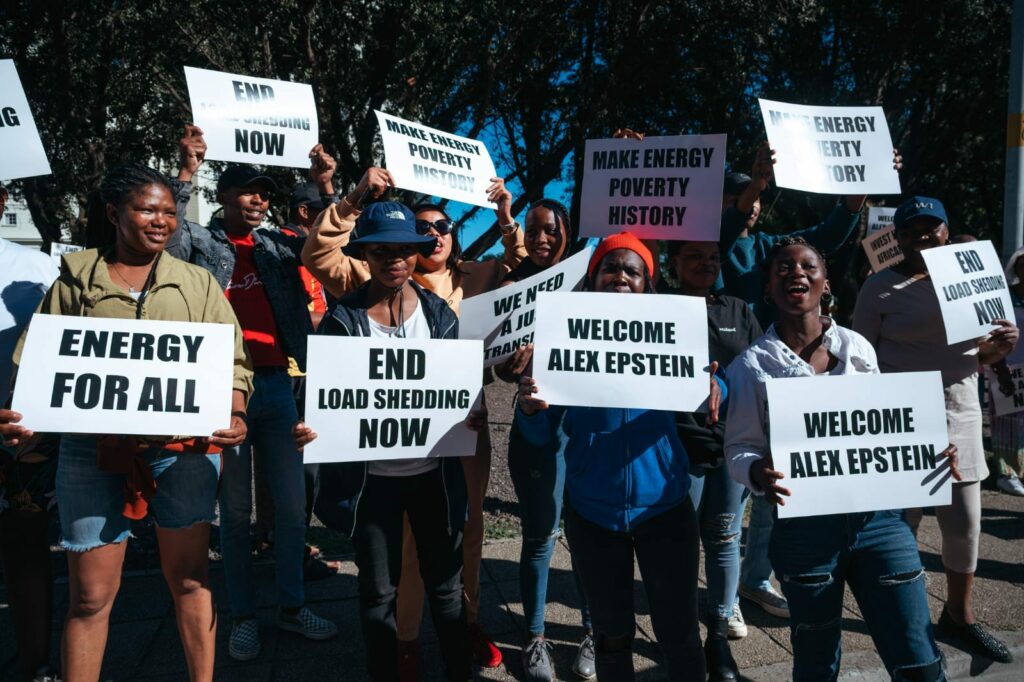
My message: For the sake of Africans and the rest of the world, African leaders need to confidently reject the net-zero movement and embrace energy freedom—including fossil fuel freedom.
- Why African leaders need to confidently reject the net-zero movement– Africa needs rapid growth in fossil fuel use, the opposite of net-zero, to develop and prosper.
– The morally bankrupt and weak net-zero leadership cannot withstand a confident African challenge. - 3 facts that prove Africans need fossil fuels to prosper1. Every prosperous country has developed using fossil fuels
2. Even prosperous countries can’t replace fossil fuels with solar and wind
3. Fossil-fueled development isn’t causing a climate crisis, it’s making humanity much safer from climate - 1. Every prosperous country has developed using fossil fuels.No poor country has been able to develop to the point of prosperity without massive fossil fuel use.The reason is that development requires energy, and fossil fuels are a uniquely cost-effective, including scalable, source of energy.
- Africa is the world’s poorest region. Most Africans want rapid development and with it, prosperity.This is absolutely achievable. But only by using the proven practices every once-poor place has used to develop and prosper.One such practice is large-scale fossil fuel use.
- In recent decades China and India have used large amounts of low-cost, reliable energy from fossil fuels to rapidly develop.Since 1980, India’s fossil fuel use has increased by >700% and China’s by >600%.India’s life expectancy increased by 17 years and China’s by 14!¹
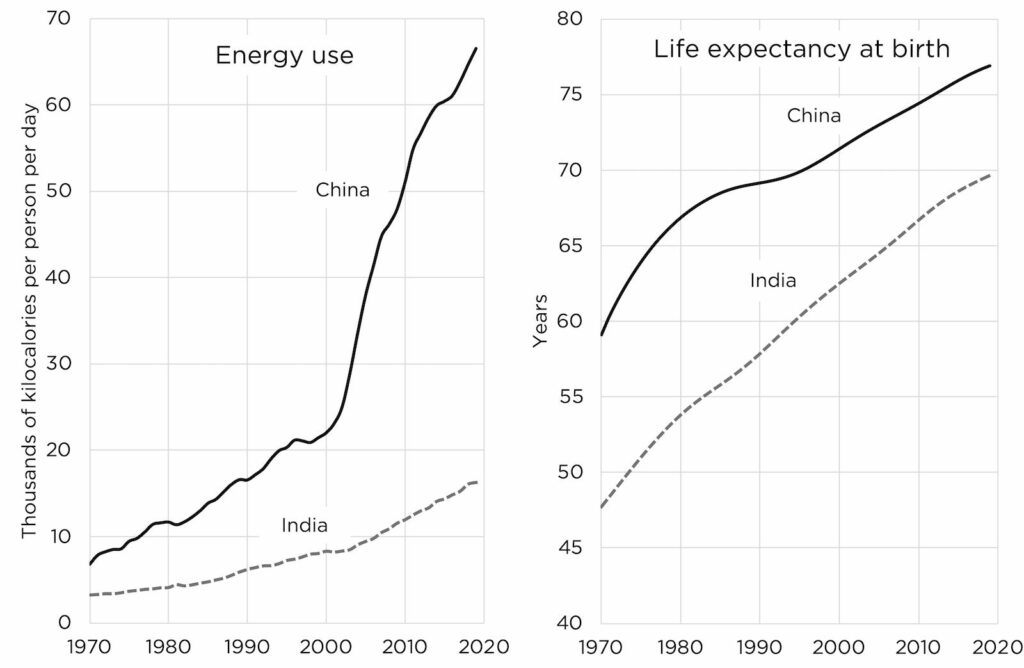
- Fossil fuels are so uniquely good at providing low-cost, reliable energy for developing nations that even nations with little or no fossil fuel resources have used fossil fuels to develop and prosper. E.g. South Korea (83% fossil fuels), Japan (85% fossil fuels), Singapore (99% fossil fuels).²
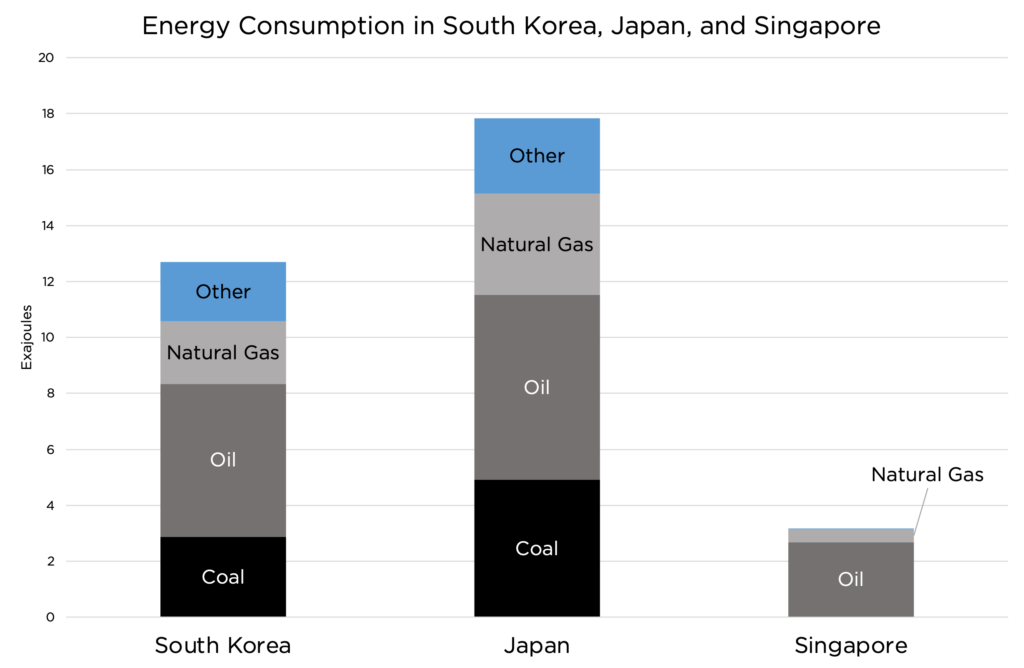
- The obvious path for African development and prosperity is to use fossil fuel whenever it is the most cost-effective option, which is most of the time, and certainly to responsibly produce the significant fossil fuel resources that exist in Africa.It is deadly for Africa to forego fossil fuels.
- 2. Even prosperous countries can’t replace fossil fuels with solar and wind.Africa is being told to develop without growing fossil fuel use and to use mostly solar and wind instead.But given that even very prosperous places can’t use mostly solar and wind, this is a death sentence for African development.
- Over the last two decades, the prosperous world has been trying to use more and more solar and wind energy.Africans should take note of the ominous results of this experiment so far: higher prices and reliability declines even at relatively low levels of solar and wind use.
- Despite claims that solar and wind are rapidly replacing fossil fuels, they provide less than 5% of world energy—only electricity, ⅕ of energy—and, crucially, even that small percentage depends on huge subsidies and reliable (mostly fossil-fueled) power plants.³
- Solar and wind’s basic problem is unreliability, to the point they can go near zero at any time. Thus they don’t replace reliable power, they parasitize it. This is why they need huge subsidies and why no grid is near 50% solar and wind without parasitism on reliable neighbors.
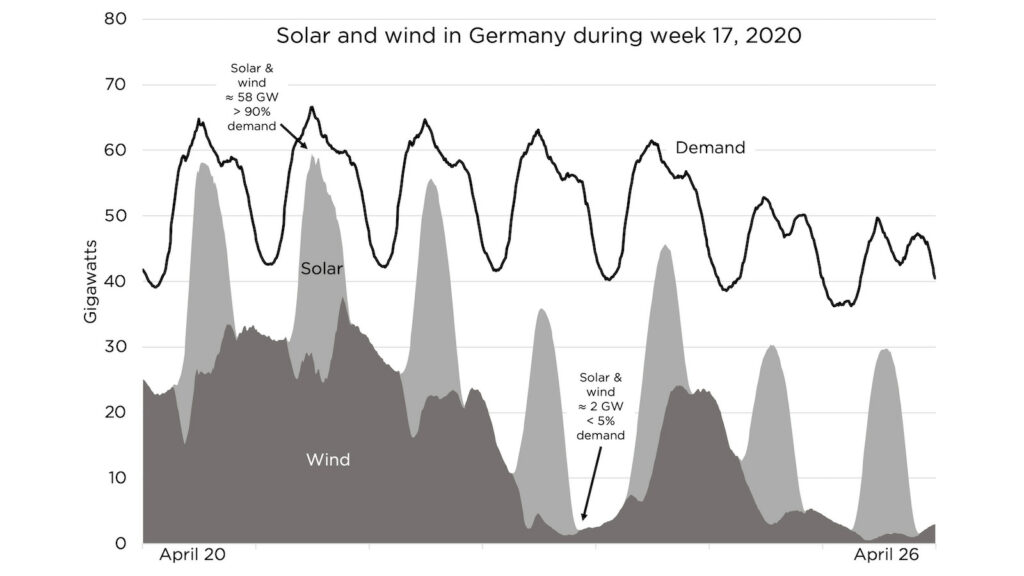
- The popular idea that we can use mostly or only solar and wind with sufficient battery backup is not being tried anywhere because it’s absurd. Batteries are so expensive that just 3 days of global backup using Elon Musk’s Megapacks would cost $570 trillion, about 6X global GDP!⁴
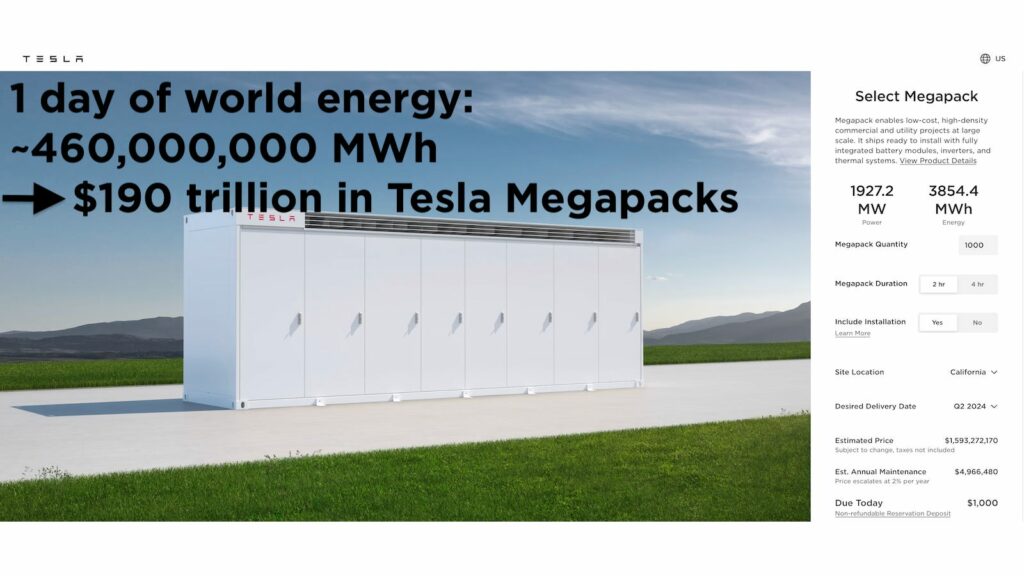
- Consider that Germany, to get 37% of its electricity from unreliable solar and wind, has doubled its prices—now 3 times US prices. And Germany can only get away with 37% because it has neighbors to bail it out when solar and wind fall short. Impoverished Africa can’t prosper on this path.⁵
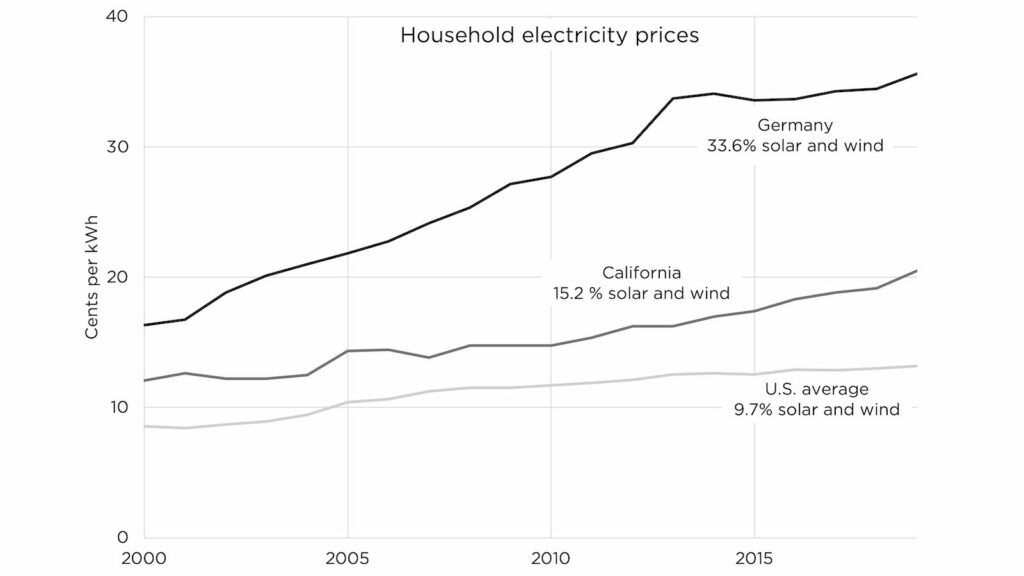
- When net-zero advocates say Africa should “leapfrog” fossil fuels with solar and wind just as many have “leapfrogged” landlines with cell phones, they are making an absurd analogy.Cell phones can actually replace landlines for most purposes. Solar and wind can’t replace fossil fuels.
- Justified by net-zero goals, South African bank FirstRand has announced to stop funding coal mines and coal power plants. In a situation where South Africa’s power grid is struggling to keep the lights on. This is hurting the economy but it also makes the poorest South Africans suffer most of all.⁶
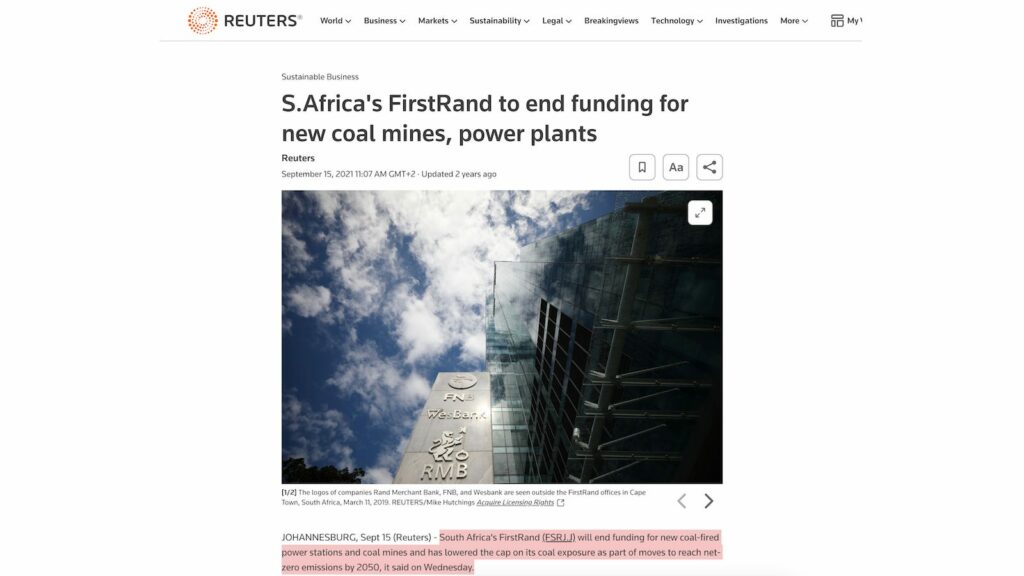
- Given that every prosperous place on Earth has depended on and continues to depend on massive fossil fuel use, and that attempts to replace fossil fuels with solar and wind are failing, the push for Africa to adopt net-zero—aka fossil fuel elimination—is a death sentence for African development.
- If net-zero is a death sentence for African development, why is it so popular around the world?Because the world has a deadly moral obsession with eliminating human climate impact at all costs—including, disgustingly, the cost of destroying Africa’s chance to prosper.
- The justification for pursuing net-zero at all costs is that we have a climate crisis that’s becoming a climate apocalypse that will hurt Africa most of all. So Africa must join others in going net-zero.But others aren’t actually going net-zero and there’s not a climate crisis.
- 3. Fossil-fueled development isn’t causing a climate crisis, it’s making humanity much safer from climateWhile fossil fuel use has a warming impact on climate, this impact is minor compared to the incredible ability fossil fuels give us to master all forms of climate danger.
- Myth: We are more endangered than ever by climate because of fossil fuels’ CO2 emissions.Truth: We have a 98% decline in climate disaster deaths due to our enormous fossil-fueled climate mastery abilities: Heating or cooling, infrastructure-building, irrigation, crop transport.⁷
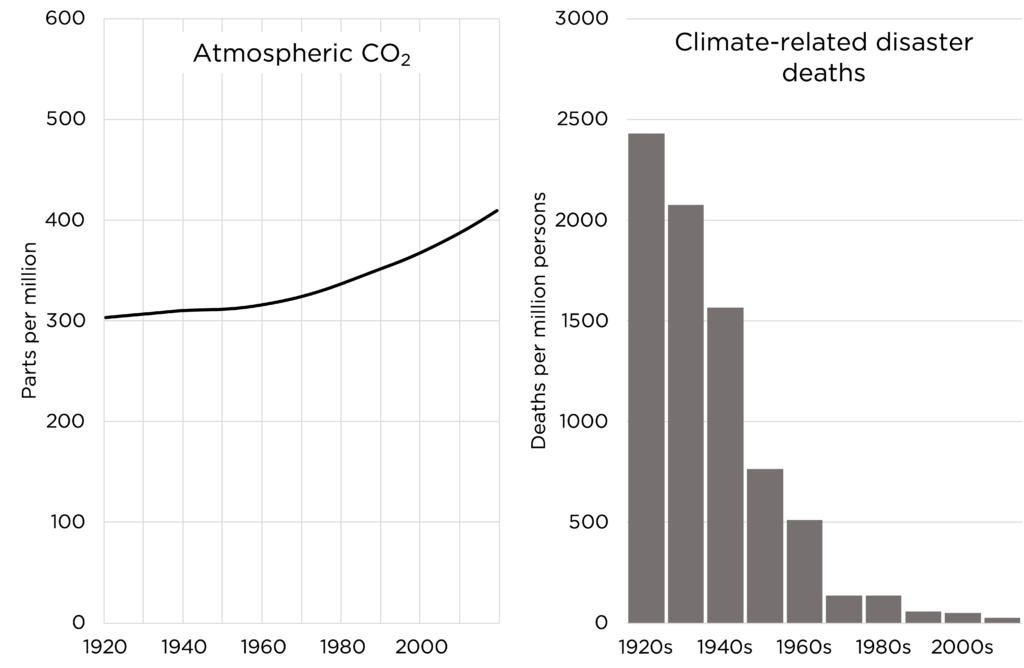
- Africans, like the rest of the world, are far safer than climate than they were 100 years ago. If they can use fossil fuels to develop and prosper, they’ll be safer still as the world slowly warms. And note that even in Africa cold-related deaths still exceed heat-related deaths.⁸

- The obvious path forward for Africa is energy freedom: the freedom to produce and use all cost-effective sources of energy—including, essentially, fossil fuels—which means rejecting all net-zero targets.Is this possible in the face of international opposition? Absolutely.
- The morally bankrupt and weak net-zero leadership cannot withstand a confident African challenge
While the international net-zero movement may be economically and politically powerful, it is morally and psychologically weak.It will crumble if Africans confidently reject it.
- For years African leaders, instead of confidently rejecting net-zero like the plague (it’s actually far more dangerous than the plague) have cooperated with the net-zero agenda, signing onto net-zero commitments—above all the Paris Agreement.This has been a huge mistake.
- A major reason African leaders have cooperated with the net-zero movement is fear of repercussions from this powerful global movement that can punish African nations by cutting off aid, discouraging financing, and discouraging trade.Such cooperation is deadly—and unnecessary.
- Africans must understand a key psychological fact about leaders in the US and many other prosperous nations: They’re terrified of challenges from 2 types of people above all: the poor and the nonwhite, both of whom they falsely claim to support.You can capitalize on this fear.
- Imagine if African leaders stood up and said: we have an absolute right to use all forms of energy, including fossil fuels, to develop and prosper, and anyone who tries to deny us this right is anti-poor, anti-black, and anti-human.Joe Biden et al would have nothing to say.
- In recent years I have been very happy to see African leaders stand up a little to net-zero, usually in the form of advocating a “just transition.”But this is still way too weak. Talking of a “just transition” still accepts the deadly idea of a rapid transition to net-zero.
- The idea of a “just transition” to net-zero usually means some combo of: Africa gets to use a little fossil fuel, and the prosperous world pledges to rapidly reduce its emissions plus give Africans some handouts if Africa doesn’t challenge net-zero overall.This is terrible.
- For Africa to accept any limitation whatsoever on its fossil fuel production and use is immoral and deadly.And it’s not in Africa’s interest for the prosperous world to rapidly go net-zero: that will absolutely destroy the global economy, including any meaningful aid to Africa.
- Africans need to stop talking about a “just energy transition” and instead embrace the concepts of “energy expansion” and “energy evolution.” This means using more energy and finding ever-better ways of producing energy. But absolutely not ruining Africa by limiting fossil fuels.
- An essential step to African leaders standing up against net-zero is to announce ASAP a withdrawal from the irredeemably immoral Paris Agreement, which commits African nations to rejecting the fossil fuels they need to develop and prosper.This should happen at COP 28.
- If African leaders find themselves threatened behind the scenes by wealthy and powerful net-zero leaders, there is an easy solution: Expose the threats publicly. Imagine what virtue-signaling weasels like Antonio Guterres will do if they are exposed for threatening Africans.
- To be most effective at fighting the net-zero movement, you must recognize that this wealthy movement’s hostility toward African fossil fuel use is deeply racist. By saying “fossil fuels for me but not for thee” it’s implying that dark-skinned people don’t need a lot of energy.
- Observe that net-zero advocates often fawn over the idea of Africans using solar to power some lights or a radio—as if that’s anywhere near enough energy. It’s because they believe that dark-skinned people don’t really want a modern life, so they don’t really need much energy.
- I believe that the color of your skin has nothing to do with the content of your mind and with what you want out of life. I believe that most people, when given the choice, want more energy and more progress. I know Africa is full of ambitious people who want these things.
- To summarize:– The net-zero movement is destroying the fossil fuel freedom Africans need to develop and prosper.
– The morally weak net-zero leadership can’t withstand a confident African challenge.It’s time to challenge them, and that includes withdrawing from the Paris Agreement. - I will do everything I can to help African leaders successfully fight the net-zero movement. I will do it because it’s a matter of justice, and because I and everyone I care about will be much better off in a world where net-zero has been defeated.So let’s fight, together.
Energy Institute – Statistical Review of World Energy
2 Energy Institute – Statistical Review of World Energy
3 Energy Institute – Statistical Review of World Energy
4 Global primary energy consumption in 2022 was 604.04 EJ or about 460 TWh (= 460,000,000 MWh) per day.
According to Tesla Megapacks cost about $413,000 per MWh.
Tesla – Order Megapack
Energy Institute – Statistical Review of World Energy
5 Public generation of electricity was over 488 terawatt-hours in Germany in 2020, solar and wind combined generated over 37%. In 2002 they generated just over 3%.
Fraunhofer ISE energy-charts.de
German household electricity prices have more than doubled to over 0.3€ per kWh ($0.35 per kWh depending on currency exchange rate) since 2000 when the modern renewable energy law started to massively incentivize solar and wind capacity on the German grid.
BDEW Strompreisanalyse Jul 2021 p. 7
The average US household price in 2020 was $0.1315 per kWh.
U.S. Energy Information Administration Electric Power Annual table 5a
Increasingly, Germany depends on interconnections with neighboring countries. In 2020 the country experienced a sharp increase in electricity imports, while still massively exporting solar and wind overproduction.
Reuters – German power export surplus shrank 46.2% in 2020
6 Reuters – S.Africa’s FirstRand to end funding for new coal mines, power plants
7 UC San Diego – The Keeling Curve
For every million people on earth, annual deaths from climate-related causes (extreme temperature, drought, flood, storms, wildfires) declined 98%–from an average of 247 per year during the 1920s to 2.5 per year during the 2010s.
Data on disaster deaths come from EM-DAT, CRED / UCLouvain, Brussels, Belgium – www.emdat.be (D. Guha-Sapir).
Population estimates for the 1920s from the Maddison Database 2010, the Groningen Growth and Development Centre, Faculty of Economics and Business at University of Groningen. For years not shown, the population is assumed to have grown at a steady rate.
Population estimates for the 2010s come from World Bank Data.
Bjorn Lomborg: Climate change and deaths from extreme heat and cold
Share This:

